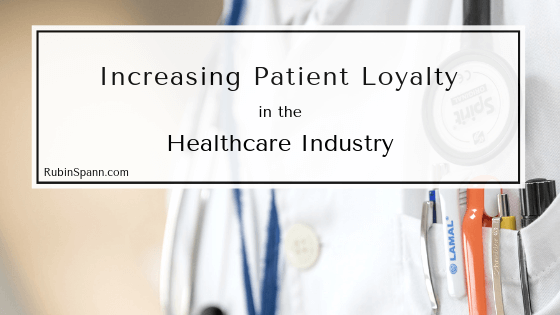The healthcare industry has become an increasingly competitive environment. Patient trends are changing toward self-care which are strengthened by digitalization and customized patient care. With an influx of choices and the internet increasing patient connectivity and making experiences more accessible, healthcare has become an industry highly susceptible to customer drop-offs. In such a competitive landscape, patient losses are especially detrimental, as they waste patient acquisition costs and reduce current and future revenues. Fortunately, healthcare companies have a means of gauging patient loyalty to help them evaluate and improve customer retention.
A Net Promoter Score Program, or NPS, serves as a valuable measurement of customer experience and loyalty. This calculation asks one key question: “On a scale of 1-10, how likely are you to recommend this product or service to a friend or colleague?” Responses ranging from 0-6 indicate detractors; unhappy customers whose negative word-of-mouth can severely impede a business’s growth. Passives, those who respond within the 7-8 range, are satisfied customers, but susceptible to sway either positively or negatively. Those responding between 9-10 are promoters; loyal customers who will contribute to a company’s top-line growth by continuing to use their products and services. With access to NPS, healthcare marketers are able to better implement marketing strategies to promote patient retention.
Healthcare marketers can implement roadmaps that plot out patient’s journeys to better understand patient experiences and engagement, and thus determine where in the process patients may begin to slip through the system. By mapping out patients’ touch points, healthcare marketers are able to identify gaps in the patients’ experiences.
These gaps are missed opportunities for engagement, which may cause patients to seek better healthcare products and services elsewhere. Marketers can employ tactics (such as social media interactions) that fill in these gaps to promote better patient engagement.
As the internet continues to increase accessibility and engagement, global healthcare marketers can leverage digital and social media marketing programs to increase customer loyalty. Retention-centric tactics, such as targeted emails, pay-per-click campaigns, and social media marketing provide patients with relevant information that promotes interest and trust in the the product and services offered. By consistently engaging patients and fostering organization-patient relationships, global commercial marketing teams can not only better retain patients, but also gather valuable information that can be used to inform future outreach and attract new, loyal customers.
While the healthcare industry proves a competitive market, organizations are able to gauge customer experience and appropriately address gaps that may steer patients into looking for products and services elsewhere. By implementing digital and personal tactics, healthcare marketers are able to cultivate customer trust and engagement, and, in turn, leverage patient experiences to promote referrals and retention, leading to top-line revenue growth.
